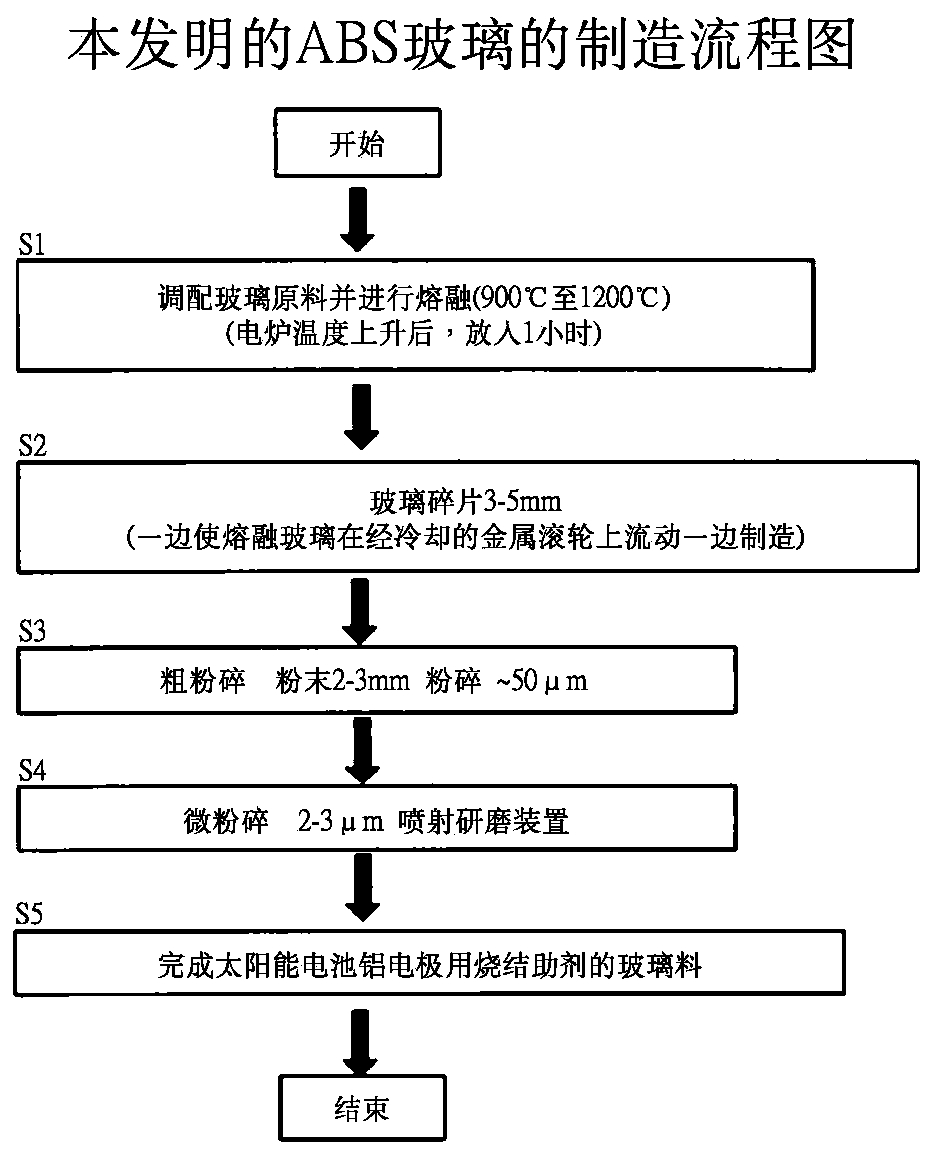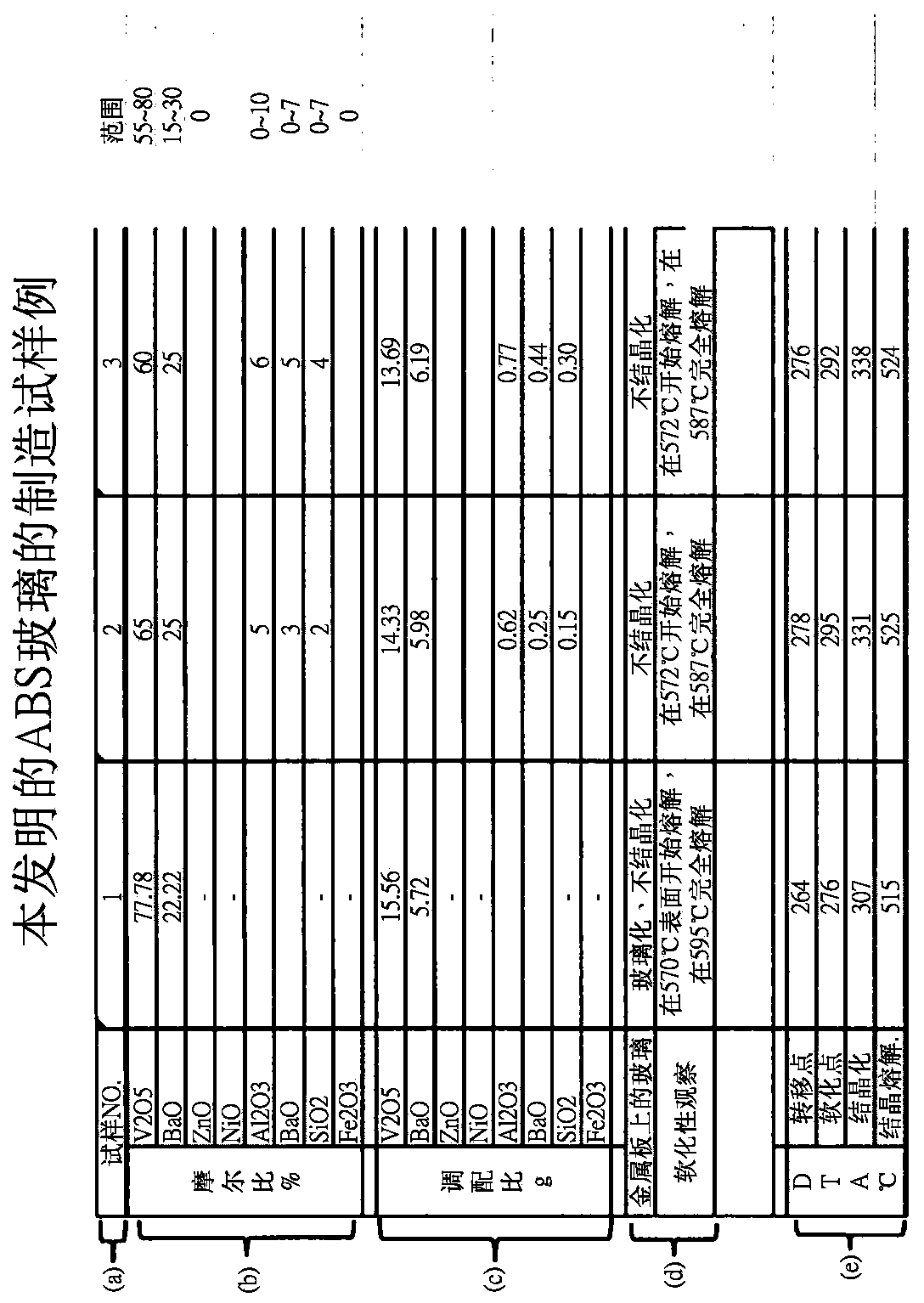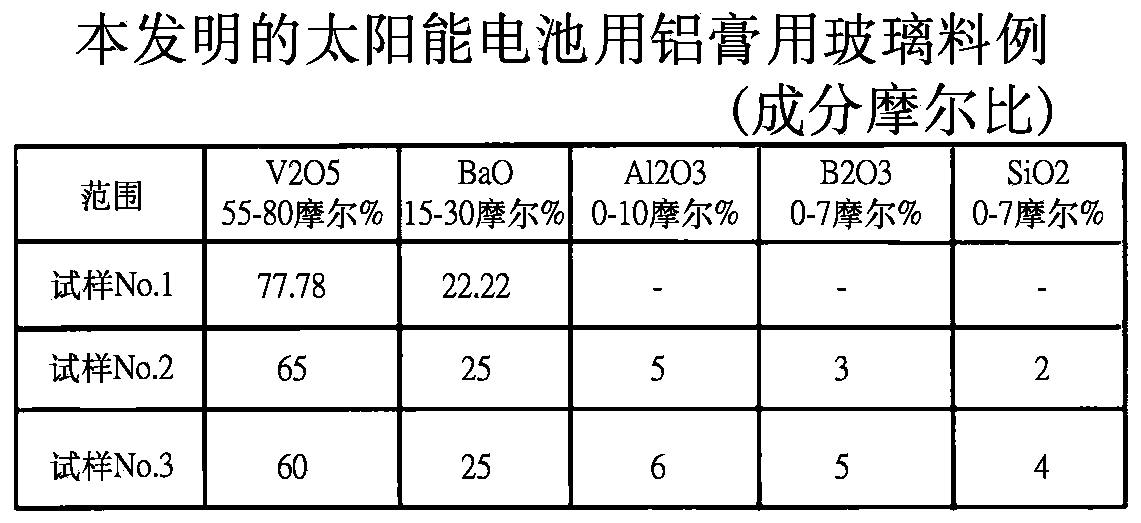Glass frit, glass frit production method, and aluminium paste
A manufacturing method and technology of glass frit, applied in the direction of quartz/glass/glass enamel, conductive materials dispersed in non-conductive inorganic materials, metal/alloy conductors, etc., can solve problems such as weak tensile strength and eliminate warping , Eliminate the effects of low life expectancy and easy vitrification
- Summary
- Abstract
- Description
- Claims
- Application Information
AI Technical Summary
Problems solved by technology
Method used
Image
Examples
Embodiment 1
[0028] figure 1 The manufacturing flow chart of the ABS glass (Art Beam solar cell glass) of this invention is revealed.
[0029] exist figure 1 , S1 Prepare and melt glass raw materials (900°C to 1200°C) (after the temperature of the electric furnace rises, add and leave for 1 hour). This is when the temperature of the electric furnace is raised to the optimum temperature determined by experiments in the range of 900°C to 1200°C, the prepared glass raw material is put into the crucible, inserted, dissolved and left for 1 hour. Alternatively, the raw material put in the crucible may be melted and left to stand for 1 hour by raising the temperature to a predetermined temperature in an electric furnace. In the experiment, the glass raw material is, for example, the following figure 2 Displayed below etc.
[0030]
[0031]
[0032] S2 produces glass shards (3 to 5mm). As described below, the molten glass produced in S1 was produced while flowing on the cooled metal ro...
PUM
| Property | Measurement | Unit |
|---|---|---|
| melting point | aaaaa | aaaaa |
| particle size | aaaaa | aaaaa |
| particle diameter | aaaaa | aaaaa |
Abstract
Description
Claims
Application Information
 Login to View More
Login to View More - R&D
- Intellectual Property
- Life Sciences
- Materials
- Tech Scout
- Unparalleled Data Quality
- Higher Quality Content
- 60% Fewer Hallucinations
Browse by: Latest US Patents, China's latest patents, Technical Efficacy Thesaurus, Application Domain, Technology Topic, Popular Technical Reports.
© 2025 PatSnap. All rights reserved.Legal|Privacy policy|Modern Slavery Act Transparency Statement|Sitemap|About US| Contact US: help@patsnap.com



